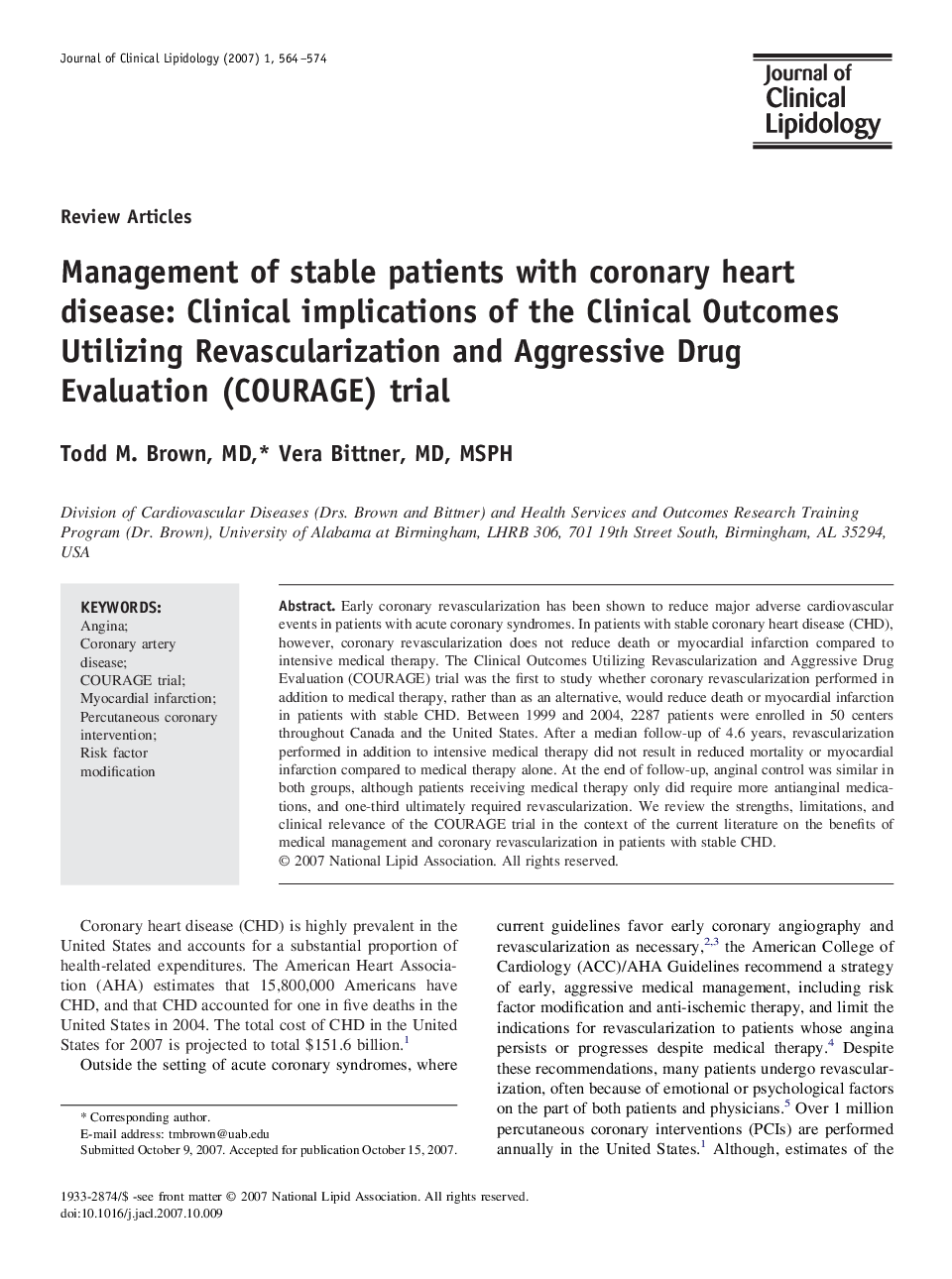| Article ID | Journal | Published Year | Pages | File Type |
|---|---|---|---|---|
| 2966996 | Journal of Clinical Lipidology | 2007 | 11 Pages |
Early coronary revascularization has been shown to reduce major adverse cardiovascular events in patients with acute coronary syndromes. In patients with stable coronary heart disease (CHD), however, coronary revascularization does not reduce death or myocardial infarction compared to intensive medical therapy. The Clinical Outcomes Utilizing Revascularization and Aggressive Drug Evaluation (COURAGE) trial was the first to study whether coronary revascularization performed in addition to medical therapy, rather than as an alternative, would reduce death or myocardial infarction in patients with stable CHD. Between 1999 and 2004, 2287 patients were enrolled in 50 centers throughout Canada and the United States. After a median follow-up of 4.6 years, revascularization performed in addition to intensive medical therapy did not result in reduced mortality or myocardial infarction compared to medical therapy alone. At the end of follow-up, anginal control was similar in both groups, although patients receiving medical therapy only did require more antianginal medications, and one-third ultimately required revascularization. We review the strengths, limitations, and clinical relevance of the COURAGE trial in the context of the current literature on the benefits of medical management and coronary revascularization in patients with stable CHD.
